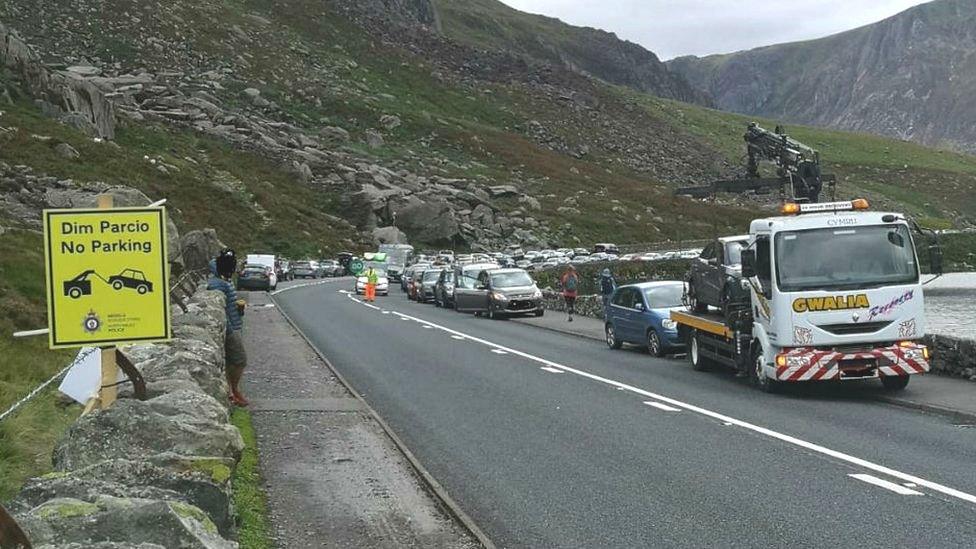Call for Snowdon to only be known by Welsh name Yr Wyddfa
- Published
There were mixed responses about the proposals
Wales' highest mountain could only be called by its Welsh name under plans being considered by park authorities.
It follows a motion brought by a Gwynedd county councillor that Snowdonia National Park authorities be asked to only refer to Snowdon as Yr Wyddfa, and Snowdonia as Eryri.
The mountain in Snowdonia National Park stands at 3,560ft (1,085m) and attracts about 400,000 walkers a year.
But the park authority said a task group would consider the proposal.
Snowdonia National Park Authority (SNPA) said the motion was not discussed at a meeting on Wednesday as it would be considered by its task group, set up to adapt guidelines on the use of Welsh place names.
What's in a name?
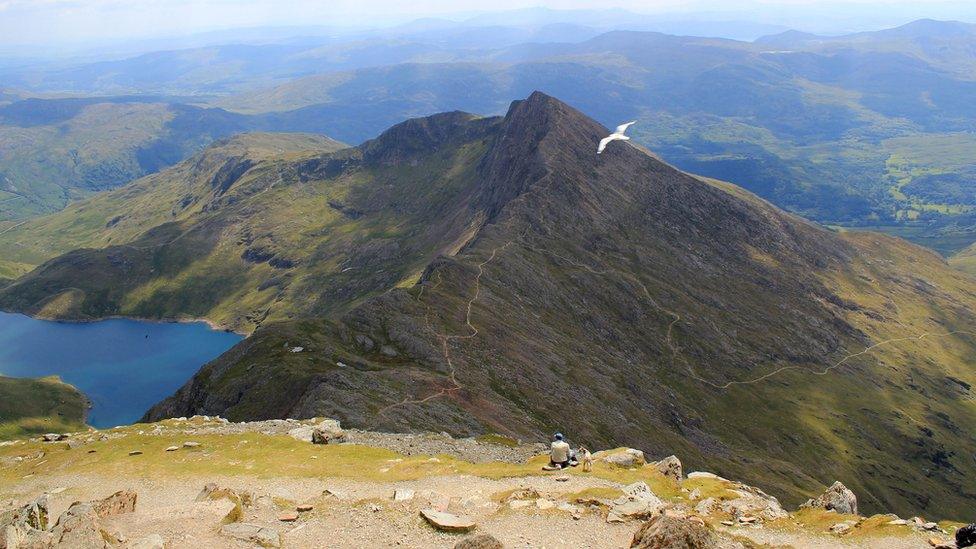
Snowdon - or Yr Wyddfa - is the highest mountain in Wales at 3,560ft (1,085m)
The Welsh name for Snowdon, Yr Wyddfa, means grave and is pronounced like "er with-va".
The story goes in a legend that the giant Rhita Gawr, the king of Wales, was buried under a cairn of stones on the summit of the mountain, following a battle with King Arthur.
It is said that the giant defeated 30 kings of Britain, taking their beards to create a cloak of the beards, reaching from his shoulder to the floor.
Meanwhile, Eryri, the Welsh name for Snowdonia, is believed to originate from the Latin: oriri (to rise) and was first documented in the 9th Century, despite it long being thought to refer to the Welsh name for eagle - Eryr, according to the Local Democracy Reporting Service.
The English names for Snowdonia and Snowdon are thought to derive from the Saxon: snow dune, meaning snow hill.
Hill expert Myrddyn Phillips said, according to Hywel Wyn Owen and Richard Morgan's Dictionary of the Place-Names of Wales, the name Snowdon is documented as far back as far 1095, while the first known reference to Yr Wyddfa was in 1284.
Has this happened elsewhere?
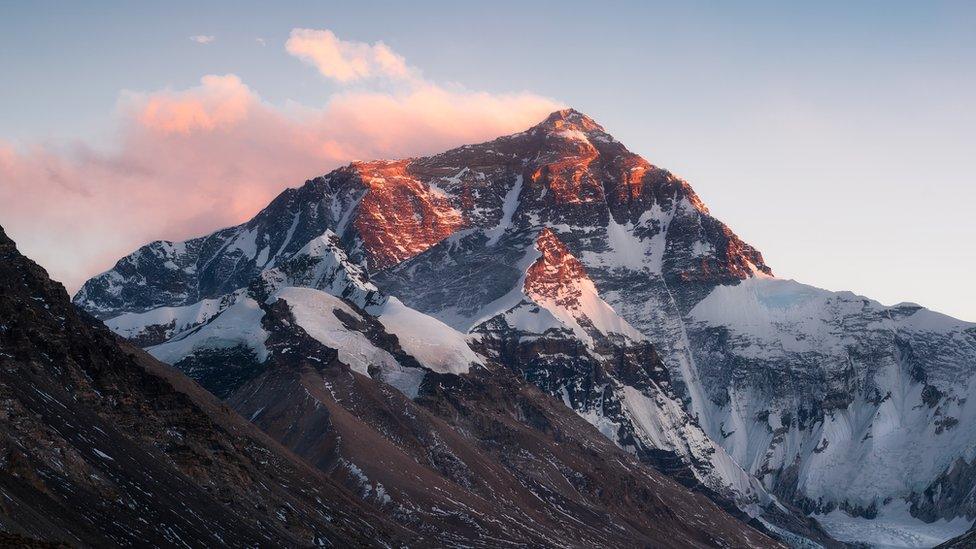
Mount Everest's Tibetan name is Chomolungma, meaning goddess mother of the world
The highest mountain in the world, Mount Everest, is not commonly known by its Tibetan name Chomolungma, meaning goddess mother of the world.
Many Sherpas, a community indigenous to the Himalayan region, believe that the summit of Chomolungma is home to the Buddhist goddess Miyolangsangma.
Its English name comes from Colonel Sir George Everest, who was born in Crickhowell, Powys, in 1790, who was a Surveyor General of India.
Meanwhile, Australia's giant monolith Ayers Rock was renamed Uluru in 1993, switching from its colonial namesake, former South Australian Premier Sir Henry Ayers, to the language of its traditional owners, the Anangu people.
In 2002, that dual name was officially reversed, making it Uluru/Ayers Rock. Almost all Australians now refer to it as Uluru.
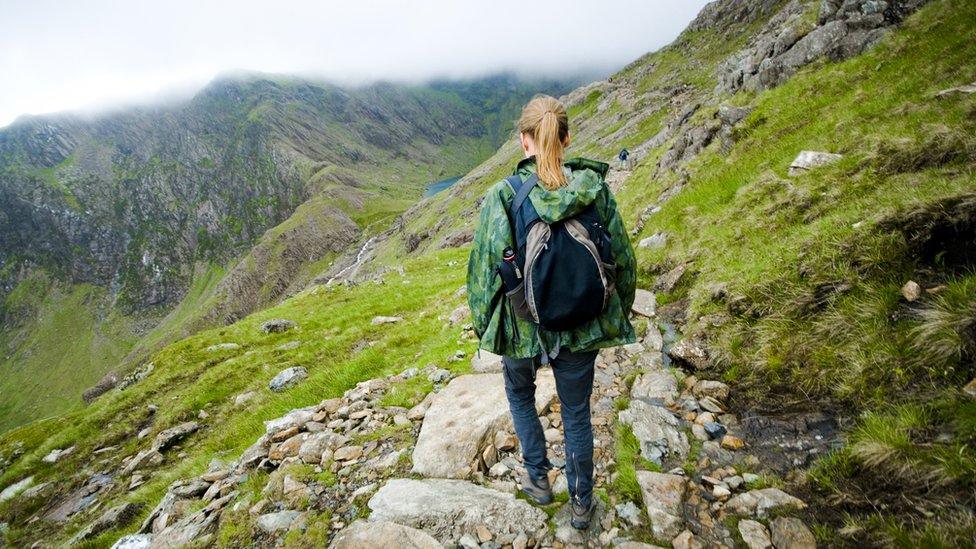
Snowdonia National Park said about 10 million visitor days were spent in Snowdonia - or Eryri - each year
Councillor John Pughe Roberts, who put forward the motion for Snowdon and Snowdonia, said many members were "complaining that people are changing house names, rock names, renaming the mountains".
Speaking on BBC Radio Cymru's Dros Frecwast programme, Mr Roberts, who represents Corris Mawddwy in Gwynedd, said: "In this area, for example Bwlch y Groes has become Hellfire Pass, Dol Hir is known as Longmeadow and this is happening in many areas."
After learning of the decision that his motion was to be considered by the park authority's task group, he told the Local Democracy Reporting Service he was "naturally disappointed".
"There's much talk of people wrongly changing Welsh house names into English and long established place names being eradicated, but the public sector has a duty to lead the way here rather than insisting on this bureaucracy of kicking the can down the road to another committee," he said.
SNPA chairman Wyn Ellis Jones said: "Authority members decided that there was no need to consider the motion today as a Welsh place names task and finish group has already been appointed.
"This follows previous consideration by the members in a working group which recommended to establish and adopt guidelines to guide the use of place names by the SNPA."
He also said authority members would consider these issues once the task group was able to make recommendations.
"The authority is committed to protect and promote the use of native place names for everyday use and future generations," he added.

WEATHERMAN WALKING: Explore some of the most spectacular scenery that Wales has to offer
ON A WELSH WORLD TOUR: Tudur meets flying tea ladies, American tourists and globetrotting gnomes

- Published14 June 2018
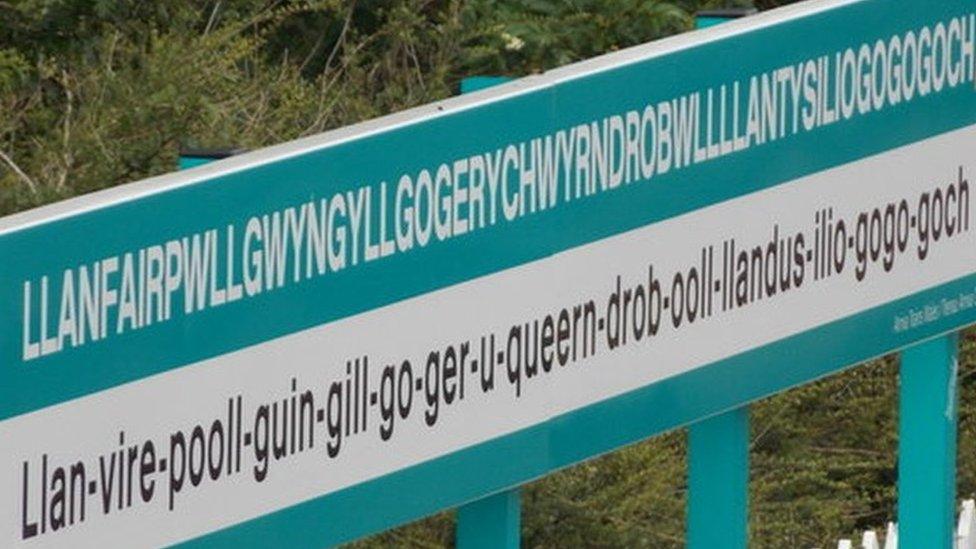
- Published5 April 2018

- Published8 April 2018

- Published26 April 2021
